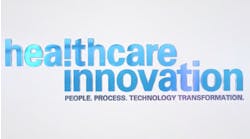Boston Children’s Hospital and GE Healthcare plans to collaborate on developing and commercializing digital solutions to advance the diagnosis and treatment of specific childhood diseases, starting with diseases that affect the brain.
The first project, detailed at the annual meeting of the Radiological Society of North America (RSNA) taking place in Chicago this week, aims to improve diagnostic accuracy in pediatric brain scans by providing real-time contextual information at the time and place the radiologist needs it, according to a press release.
Every day, tens of thousands of children undergo medical imaging. At Boston Children’s Hospital, which is a 404-bed comprehensive center for pediatric and adolescent healthcare, nearly 1,000 imaging studies are performed each day. For general radiologists and pediatric imagers alike, the rapid changes in the body that occur as part of normal childhood development can pose challenges to accurately differentiate normal from abnormal.
Leveraging the high-volume computing power of the GE Health Cloud and the clinical knowledge of radiologists at Boston Children’s, the two organizations are working to develop a decision support platform that is intended to help distinguish the large variability in brain MRI scans. According to a press release, the system will be pre-loaded with normative reference scans from young children of different ages for doctors worldwide to use as a benchmark when reading scans of pediatric patients.
“Interpreting pediatric brain scans requires a specific understanding of the developing brain,” Richard Robertson, M.D., radiologist-in-chief at Boston Children’s, said. “Since most pediatric imaging is not performed in children’s hospitals by specialists, this new digital tool, once available, will provide non-specialists with access to knowledge and expertise to help effectively diagnose children. We believe that by providing decision support at the time of interpretation, we can improve both the confidence and performance of the interpreting radiologist.”
“Pediatric brain scans of children under the age of four can be particularly tricky to read because the brain is rapidly developing during this period of childhood,” Sanjay Prabhu, pediatric neuroradiologist at Boston Children’s, said. “Since pediatric neuroradiologists are very scarce, we approached GE Healthcare to collaborate on the development of digital tools to help physicians of varying expertise read the scans.”
During infancy and childhood, complicated disorders, especially when affecting the brain symmetrically, may be misinterpreted as normal brain maturation. Conversely, normal expected developmental changes are sometimes misinterpreted as pathologic leading to unnecessary follow-on imaging or other diagnostic tests, which can be expensive, stressful and inconvenient to the child and family.
Boston Children’s is participating via its Innovation and Digital Health Accelerator (IDHA), led by Jean Mixer, VP strategy and digital health, and John Brownstein, PhD, chief innovation officer.

